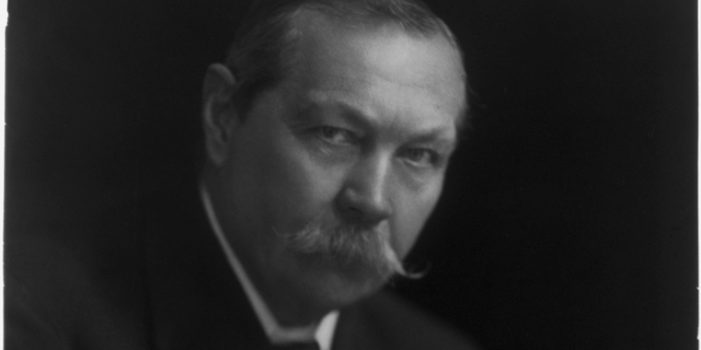“In December 1880 the Boers rose. Every farmhouse sent out its riflemen, and the trysting-place was the outside of the nearest British fort. All through the country small detachments were surrounded and besieged by the farmers. Standerton, Pretoria, Potchefstroom, Lydenburg, Wakkerstroom, Rustenberg, and Marabastad were all invested and all held out until the end of the war. In the open country we were less fortunate. At Bronkhorst Spruit a small British force was taken by surprise and shot down without harm to their antagonists. The surgeon who treated them has left it on record that the average number of wounds was five per man. At Laing’s Nek an inferior force of British endeavoured to rush a hill which was held by Boer riflemen. Half of our men were killed and wounded. Ingogo may be called a drawn battle, though our loss was more heavy than that of the enemy. Finally came the defeat of Majuba Hill, where four hundred infantry upon a mountain were defeated and driven off by a swarm of sharpshooters who advanced under the cover of boulders. Of all these actions there was not one which was more than a skirmish, and had they been followed by a final British victory they would now be hardly remembered. It is the fact that they were skirmishes which succeeded in their object which has given them an importance which is exaggerated. At the same time they may mark the beginning of a new military era, for they drove home the fact—only too badly learned by us—that it is the rifle and not the drill which makes the soldier. It is bewildering that after such an experience the British military authorities continued to serve out only three hundred cartridges a year for rifle practice, and that they still encouraged that mechanical volley firing which destroys all individual aim. With the experience of the first Boer war behind them, little was done, either in tactics or in musketry, to prepare the soldier for the second. The value of the mounted rifleman, the shooting with accuracy at unknown ranges, the art of taking cover—all were equally neglected.” – Arthur Conan Doyle, from The Great Boer War
- Ad California Legal Rifles & Pistols!WBT makes all popular rifles compliant for your restrictive state. Choose from a wide range of top brands made compliant for your state.
- Ad Trekker Water Station 1Gal Per MinuteCall us if you have Questions 800-627-3809










